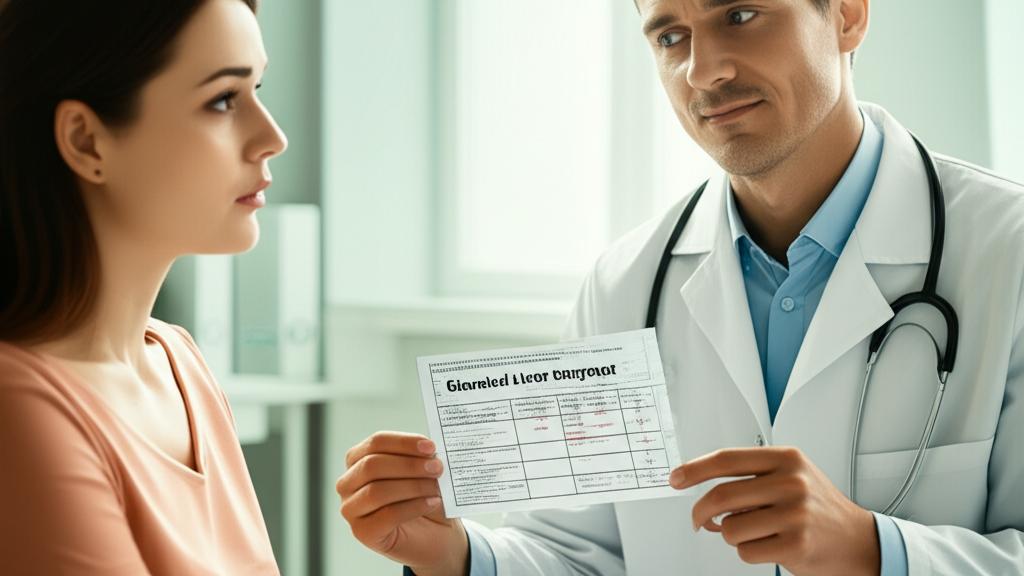It’s a scenario I see all the time in my practice. You come in for a routine check-up, feeling perfectly fine. We run some standard blood work, and a few days later, you get a call from my office. The nurse says, “The doctor wants to talk about your lab results.” A little flag on the report shows you have elevated liver enzymes. And just like that, a dozen worries pop into your head. I get it. It sounds scary. But let’s take a deep breath and talk about what this actually means.
First off, finding elevated liver enzymes is a signal, not a diagnosis. Think of your liver as a busy, hardworking factory. It produces vital things like bile (to digest food) and clotting factors for your blood. It also cleans up, breaking down toxins and fighting off infections. The “workers” in this factory are proteins called enzymes. When the liver is stressed or injured, some of these workers—these enzymes—can leak out into your bloodstream. A simple blood test, often called a liver function test (LFT), measures the levels of these enzymes. The most common ones we look at are alanine transaminase (ALT) and aspartate transaminase (AST).
What Causes Elevated Liver Enzymes?
This is the big question, isn’t it? The list of potential causes is long, which can feel overwhelming. But it’s important to remember that many are common and manageable. The cause can range from a temporary issue to a more chronic condition. In my experience, about a third of people with a single high reading will find their levels are back to normal on a repeat test a few weeks later.
Let’s break down the common culprits.
| Category of Cause | Doctor’s Explanation & Examples |
|---|---|
| Common Liver Conditions | These are the things we often check for first. They directly stress the liver.
|
| Medications & Supplements | What you put in your body matters. The liver has to process everything.
|
| Other Medical Conditions | Sometimes, the problem isn’t directly in the liver but affects it.
|
What Symptoms Might I Have?
Here’s the thing: most people with elevated liver enzymes feel absolutely nothing. It’s usually an incidental finding on a lab test. However, if the high enzymes are due to significant liver inflammation or damage, you might start to notice some signs. Don’t panic if you have one of these, but do let your doctor know.
| Symptom | What It Might Feel or Look Like |
|---|---|
| General Feeling | Deep, persistent fatigue that isn’t solved by sleep; a general loss of appetite. |
| Stomach Issues | A dull pain or ache in your upper right abdomen, where your liver is; unexplained nausea and vomiting. |
| Visible Changes | Jaundice, which is a yellowing of your skin or the whites of your eyes; persistent itching without a rash. |
| Bathroom Changes | Urine that is unusually dark (like tea or cola); stools (poop) that are very pale or light-colored. |
What Happens Next? The Doctor’s Plan
If your levels are high, the first step is simple: don’t panic. We need to figure out why. Here’s the typical approach we take:
- Talk and Review: We’ll have a good chat. I’ll ask about your lifestyle, alcohol use, and any medications, herbs, or supplements you’re taking. Be honest! This is a judgment-free zone.
- Repeat the Test: We’ll often repeat the LFT in a few weeks to see if it was just a temporary blip.
- Further Investigations: If the levels are still high, we might order more specific blood tests to look for hepatitis viruses, iron levels, or certain antibodies.
- Imaging: A simple ultrasound of your abdomen is often the next step. It’s painless and gives us a good look at your liver’s size and texture. If we need more detail, a CT scan or MRI might be suggested.
- Referral: If things are still unclear or point to a specific liver disease, I’ll refer you to a hepatologist—a doctor who specializes in the liver. They are the experts who can guide the most specific treatments.
Treatment is all about addressing the underlying cause. If it’s a medication, we might switch it. If it’s fatty liver, the focus will be on diet, exercise, and weight management. Whatever it is, we’ll make a plan together.
Take-Home Message
- It’s a Clue, Not a Verdict: Elevated liver enzymes are a signal that your liver is under some kind of stress. They tell us to look closer, but they don’t tell the whole story on their own.
- Many Causes Are Reversible: Many common causes, like fatty liver disease or medication side effects, can be managed or reversed with lifestyle changes or treatment adjustments.
- Tell Your Doctor Everything: Be open about all medications, over-the-counter drugs, vitamins, and herbal supplements you take. It’s crucial information.
- A Healthy Lifestyle is Key: Maintaining a healthy weight, eating a balanced diet, exercising, and limiting alcohol are powerful ways to protect your liver health.
- Follow-Up is Important: Don’t ignore the result. Work with your doctor to investigate the cause and monitor your levels.
Finding out you have an abnormal lab result can be unsettling. But it’s also an opportunity to listen to what your body is telling you. You’re not alone in this, and we’re here to figure it out together.


